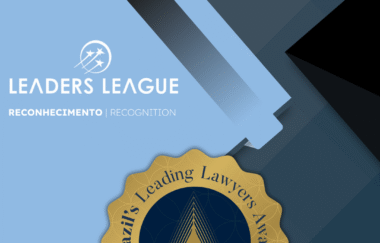On January 18, 2024, the Secretariat for Economic Reform of the Brazilian Ministry of Finance released “Notice of Public Consultation No. 1,” aiming to facilitate the formulation of public policies by the Brazilian Government for the regulation of economic and competition aspects related to digital platforms. This initiative includes the consideration of draft bills on the subject.
As outlined in the document made available by the Brazilian Government, the primary objectives of the public consultation are to solicit input from civil society regarding (i) potential amendments to existing competition legislation, including Law No. 12.529/2011, the Brazilian Competition Law (“BCL”); (ii) the creation of new regulations; (iii) identification of aspects that should be subject to regulation; and (iv) recommendations on coordinating state intervention for the regulation of platforms and digital markets in Brazil.
According to the assessment by the Ministry of Finance’s Economic Reform Secretariat, there is an ongoing and significant global debate about the economic and competitive implications of “large digital platforms,” such as search engine providers, instant messaging services, social networks, and online marketplaces. This debate also addresses the issue of suitability of current legislation and regulations for ensuring effective competition in these evolving markets.
While the European Union has implemented specific legislation to regulate ‘gatekeepers’ — digital platforms serving as gateways between companies and consumers across various markets[1] — other jurisdictions, such as the United Kingdom, Germany, and Australia, have chosen to introduce flexible rules for specific platforms. Some countries have opted for remedies tailored to certain types of platforms or sectors, as seen in South Africa and Canada, while others focus on enhancing transparency, such as in Japan. Additionally, certain countries, like Singapore and South Korea, have established guidelines for applying competition law to specific platforms.
In Brazil, several regulatory proposals are currently under consideration at the National Congress, with Draft Bill No. 2,768/22 standing out. This draft bill aims to regulate, oversee, and penalize digital platforms providing services to Brazilian citizens, assigning the National Telecommunications Agency (ANATEL) the jurisdiction for enforcement.[2]
The consultation launched by the Brazilian Government comprises nine main questions and other specific inquiries organized into three topics: (i) objectives and regulatory rationale; (ii) sufficiency and adequacy of the current economic regulation and competition defense model; and (iii) design of a potential regulatory model for pro-competitive economic regulation. The consultation covers various areas, including proposals for changes to current antitrust legislation. This encompasses the identification of new anticompetitive behaviors in digital markets, the adoption of new parameters and criteria for notifying mergers involving digital markets, and the establishment of new rules for ex ante regulation, assigning specific jurisdiction to an existing regulatory agency or creating a new one.
The list of questions for the public consultation has been prepared to guide those interested in contributing to the discussion. However, the Secretariat for Economic Reform of the Brazilian Ministry of Finance encourages interested parties to submit additional comments on topics that have not been specifically addressed. The deadline for submitting contributions is March 18, 2024, through the Participa + Brasil platform: https://www.gov.br/participamaisbrasil/concorrencia-plataformas-digitais.
The consultation launched by the Brazilian Government provides an opportunity for civil society, including companies, associations, and any interested parties, to express their opinions and contribute to the drafting of public policies in the sector. This includes participation in a legislative process that may lead to changes in antitrust legislation and/or the introduction of new laws and regulations on the subject. This is a significant initiative towards introducing new regulation on digital markets in Brazil.
We will continue to closely monitor further developments on this matter. If you have specific questions, please contact:
Fabricio A. Cardim de Almeida – fabricio.cardim@mellotorres.com.br
Gláucia Gomes Menato – glaucia.menato@mellotorres.com.br
Gustavo Köhnen – gustavo.kohnen@mellotorres.com.br
Ivan Lago Mariotto – ivan.mariotto@mellotorres.com.br
[1] On November 1st, 2022, the Digital Markets Act (DMA) came into effect in the European Union, establishing specific rules aimed at fostering contestability and fairness in digital markets where gatekeepers are present. However, in practice, the majority of its provisions took effect on May 2, 2023, and the announcement of the first designated ‘gatekeepers’ occurred on September 6, 2023. The European legislation has been influencing the debate in other jurisdictions, including Brazil, with the proposal of similar provisions in Draft Bill No. 2,768/22 (see below).
[2] Draft Bill No. 2,768/22 is currently under review by the Economic Development Committee of the Chamber of Deputies. The draft bill was also made available for public consultation in late 2023, and the comments submitted are expected to be reviewed by the Chamber of Deputies.


